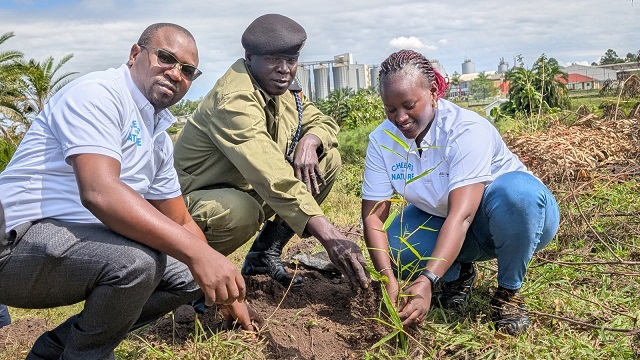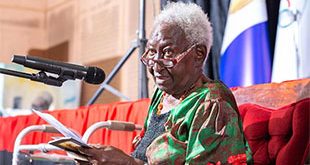
MBARARA, UGANDA | THE INDEPENDENT | Nile Breweries Limited (NBL), a subsidiary of AB InBev, has successfully reduced water consumption at its Mbarara brewery by 40% since its commissioning in 2013, it said on March 27.
This achievement was highlighted during the World Water Day commemoration in Mbarara, where George Odong, Brewing Manager at Mbarara Brewery, underscored the company’s commitment to sustainable water management.
“Water is not only essential to our brewing process but also to the communities we serve. That’s why we are committed to using this vital resource responsibly,” said Odong. “At NBL, we take a holistic approach to water risk management, ensuring environmental stewardship while maintaining production excellence.”
The brewery has implemented advanced water treatment and recycling systems, enabling the purification and reuse of water within production processes.
Additionally, high-efficiency cooling systems and automated controls have been introduced to optimize water use and minimize wastage.
“Our goal is to continually reduce our water footprint while meeting operational demands,” Odong added. “We’ve invested in cutting-edge water treatment technologies to ensure all discharged water meets stringent quality standards before returning to natural waterways. Treated wastewater is also repurposed for non-production activities, such as cleaning and gardening, further minimizing waste.”
Mbarara Brewery relies on River Rwizi as its main water source. To safeguard this critical resource, NBL has partnered with the World Wide Fund (WWF) Uganda, the Ministry of Water and Environment, local governments, and communities to restore the river’s ecosystem and enhance water security in the catchment area.
In celebration of World Water Day under the theme “Cheers to Nature,” NBL and its partners planted bamboo trees along River Rwizi’s banks to combat soil erosion and improve natural water filtration.
“Bamboo planting strengthens the riverbank, prevents erosion, and enhances the river’s natural purification capacity,” explained Clare Asiimwe, Corporate Affairs Manager at NBL. “We recognize the interconnectedness of our operations and the health of River Rwizi, which is why we are actively collaborating with local stakeholders to address water security challenges.”
To date, 270 hectares of the river’s catchment area have been mapped and demarcated, with over 25 hectares restored along a 27 km stretch. NBL’s initiatives have also mobilized 1,000 households to adopt sustainable land management practices.
Additionally, nine rainwater harvesting systems have been installed, with 13 more under construction, providing clean drinking water to hundreds of households. The company has further supported alternative livelihood programs to reduce local dependence on the river’s resources.
“By empowering communities and investing in nature-based solutions, we are securing a sustainable future for both our business and the environment,” Asiimwe said.
 The Independent Uganda: You get the Truth we Pay the Price
The Independent Uganda: You get the Truth we Pay the Price



